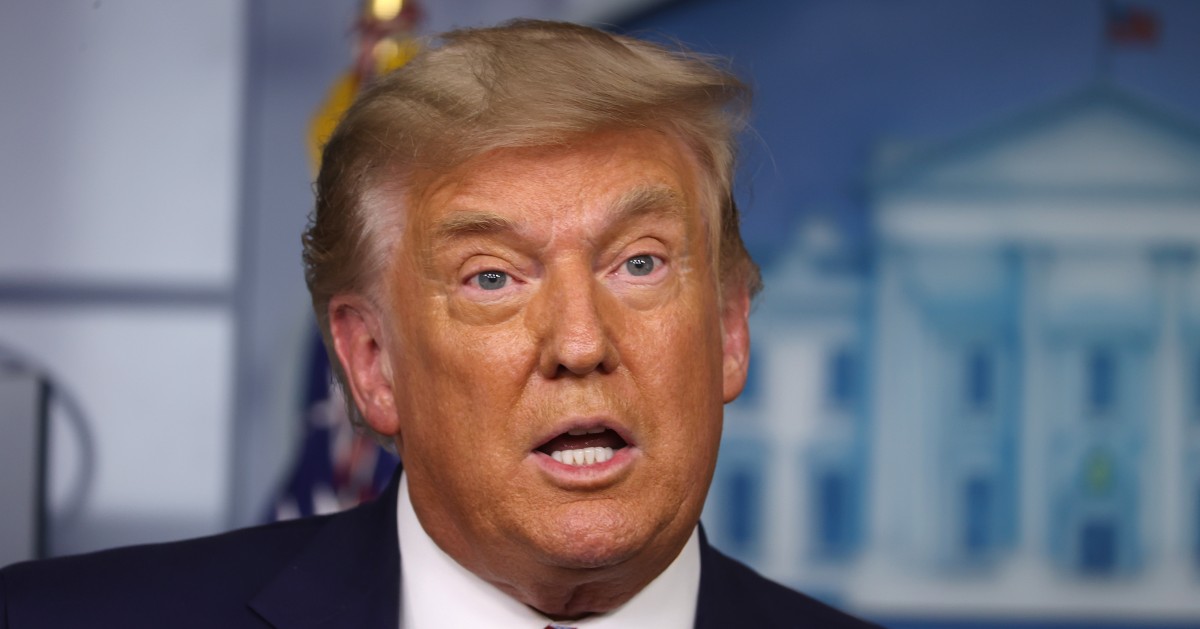OPINION: This article may contain commentary which reflects the author's opinion.
Already reeling from suspicion following a raid on former President Donald Trump’s Mar-a-Lago estate, the FBI suffered another public relation hit earlier this week.
As reported by KATV, a former FBI agent pleaded guilty to allegations that he purposely destroyed evidence to frame a pro-Trump state lawmaker in Arkansas.
The guilty plea was part of a bargain between prosecutors and the former agent Robert Cessario, who was charged with “corrupt destruction of record in an official proceeding” in connection to the corruption trial of former state Sen. Jon Woods of Springdale, the outlet reported.
“I erased the contents of the computer hard knowing that the court has ordered that the computer be submitted for a forensic examination. I did so with the intention of making the contents of the computer’s hard unavailable for forensic examination,” Cessario stated in the plea deal.
“At the time, I knew that the contents of the hard drive were relevant to an official proceeding, that is, Cause No. 5:17-CR-50010, United States v. Woods et al. I corruptly performed and had performed, the erasures with intent to impair the integrity and availability of the computer hard drive and its contents for use in that official proceeding,” the statement noted further.
The former agent faces up to 20 years in prison and a potential fine of as much as $250,000, according to KATV.
“Cessario’s charges stem from his role in the corruption trial of Woods who was convicted of mail fraud and 14 counts of wire fraud in 2018,” the outlet reported. “Woods was convicted of steering state funds to Ecclesia College in Springdale in exchange for kickbacks.”
FBI agent Robert Cessario pleads guilty to destroying evidence to frame pro-trump political prisoner.
“I erased the contents of the computer hard knowing that the court has ordered that the computer be submitted for a forensic examination…” pic.twitter.com/m0QRbZuE8l
— 🇺🇸RealRobert🇺🇸 (@Real_RobN) August 19, 2022
Woods also endorsed Trump in 2016, reports noted.
The former agent’s plea deal comes on the heels of a highly criticized raid of Trump’s Palm Beach, Fla., residence early last week, which he and his allies have claimed was entirely political in nature.
Since the raid, both sides — the Justice Department and attorneys for the former president — have legally tussled over the nature of the warrant and what was taken from Trump’s home.
That said, it’s increasingly possible that a federal court case from ten years ago involving former President Bill Clinton and some audio tapes may place a huge role in the FBI’s search, according to a report on Thursday.
During the hours-long raid, some 30 agents combed through the former first lady’s wardrobe closet and the former president’s personal office, as well as much of the residence.
According to Just the News, “legal experts say a decade-old case over audio tapes that Bill Clinton once kept in his sock drawer may have a significant impact” in the search involving Trump.
The outlet continued:
The case in question is titled Judicial Watch v. National Archives and Records Administration and it involved an effort by the conservative watchdog to compel the Archives to forcibly seize hours of audio recordings that Clinton made during his presidency with historian Taylor Branch.
For pop culture, the case is most memorable for the revelation that the 42nd president for a time stored the audio tapes in his sock drawer at the White House. The tapes became the focal point of a 2009 book that Branch wrote.
Ultimately, U.S. District Judge Amy Berman Jackson, an Obama appointee, rejected the lawsuit filed by Judicial Watch after she concluded that no Presidential Records Act provision empowers the National Archives to seize the records of a former president.
However, her ruling, as well as the Justice Department’s arguments at the time, made additional broad declarations that now appear to have direct ties to the FBI’s decision to grab handwritten notes and other files that Trump took with him when he left the White House.
The most notable of these, according to Just the News, “is that a president’s discretion on what is personal vs. official records is far-reaching and solely his, as is his ability to declassify or destroy records at will.”
“Under the statutory scheme established by the PRA, the decision to segregate personal materials from Presidential records is made by the President, during the President’s term, and in his sole discretion,” Jackson wrote in her March 2012 decision, which was never challenged on appeal.
“Since the President is completely entrusted with the management and even the disposal of Presidential records during his time in office, it would be difficult for this Court to conclude that Congress intended that he would have less authority to do what he pleases with what he considers to be his personal records,” she noted further.
Berman Jackson also wrote that a president could destroy records at will and only notify the National Archives that he had done so.
